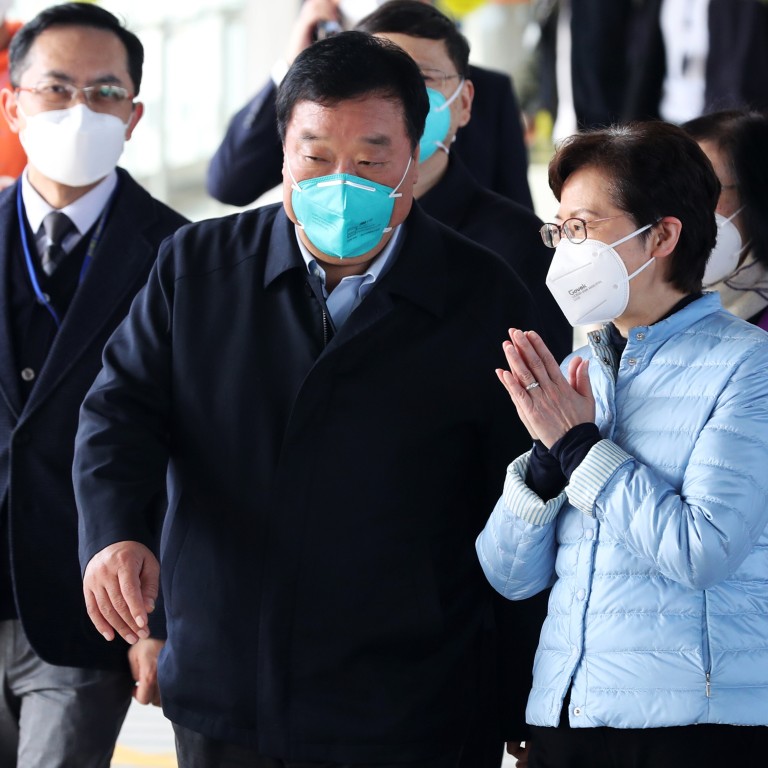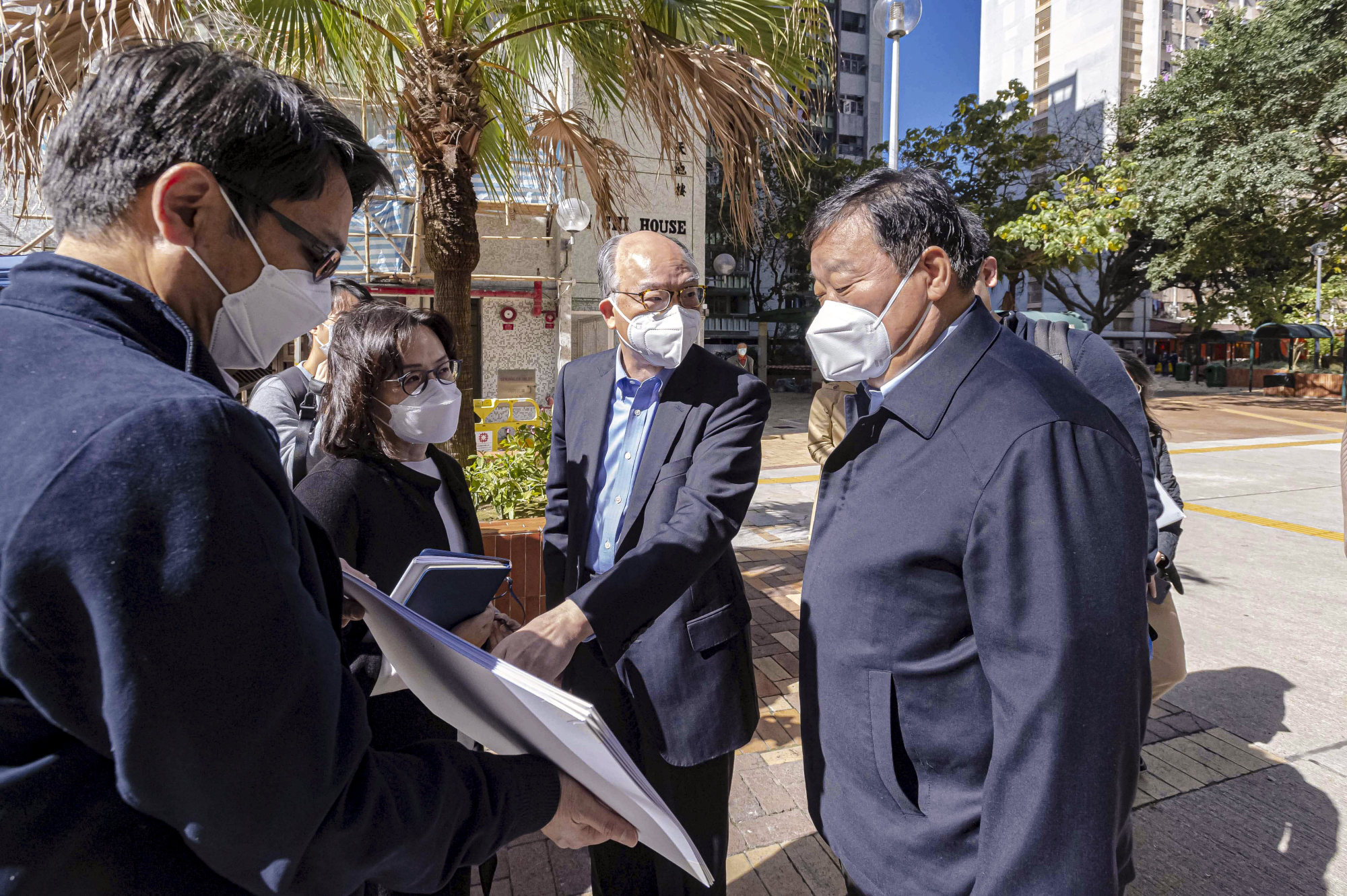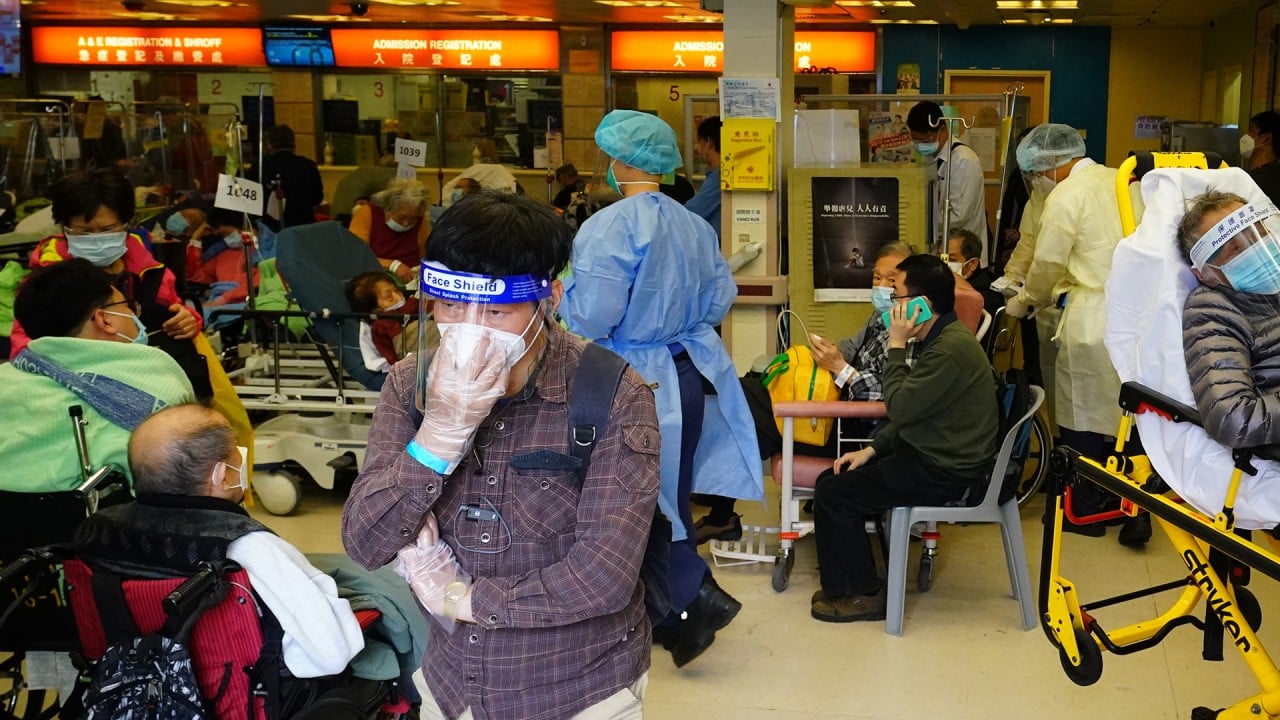
Exclusive | Coronavirus Hong Kong: ‘dynamic zero’ strategy is about saving lives, universal testing cannot be slipshod exercise, says top mainland China expert
- Visiting expert Dr Liang Wannian says government must walk careful line in devising effective strategies and maintaining stability of society and Hong Kong’s global status
- ‘[Mass testing] can’t be like you step on a watermelon rind and then let yourself slide to wherever it takes you to,’ Liang says, noting careful preparation is necessary
Pursuing a “dynamic zero” strategy in Hong Kong’s coronavirus battle is not about aiming for zero infections, but saving lives first, and the city can achieve it in stages with firm, clear actions while ensuring economic and social stability, a top visiting Chinese epidemiologist has said.
In an exclusive interview with the Post, Dr Liang Wannian, head of the National Health Commission’s Covid Response Expert Team, also sought to reassure the public why universal testing should be pursued, but only after putting in place an “effective strategy” and a proper system.
Liang, the highest ranking mainland health official sent to Hong Kong to coordinate the battle against the fifth wave of the pandemic, called on residents to be patient as the administration weighed the ideal time to carry out citywide screening and set about assessing its capacity to do so.
In recent weeks, the controversial issue of mass testing, which the government initially said would be conducted this month, has sparked panic buying and prompted residents to leave the city amid confusing signals on its timing and scale. But on Wednesday, Chief Executive Carrie Lam Cheng Yuet-ngor said the exercise would be delayed to a date to be fixed, as she shifted her pandemic strategy to adopt Liang’s recommendation to focus on “three reductions”, or cutting down on deaths, severe cases and infections.
Asked how he would reassure residents, including foreigners and mainlanders, who had left Hong Kong over fears of the lockdown and more infections, Liang prefaced his views by saying the subject was “complicated” and “difficult to answer”.

He said he believed there was no doubt mass testing through the use of the nucleic acid tests would be effective in controlling the spread of the virus, but emphasised careful consideration and preparation was needed beforehand.
“It can’t be like you step on a watermelon rind and then let yourself slide to wherever it takes you to,” he said, using a colloquial Chinese phrase akin to the English slang that one should not just “wing it” when undertaking a task.
Studiously avoiding any direct criticism of the city government, he went on to say: “There is no question about the motivation of the government and its objective … They do not do so to make people’s life difficult or make a burden for the community. The goal is to control the epidemic as soon as possible and stop transmissions.”
The government needed to carry out universal testing in the shortest time possible to ensure it was effective in reducing transmissions, Liang suggested.
“We need to trade a short time of inconvenience for a longer time of convenience. I think it is a good bargain in terms of cost-effectiveness,” he said.
Noting how the entire process was complex, he said the government would need to first have a checklist of issues to be addressed, including on who would be collecting specimens and tracing the possibly huge number of infections uncovered, and how to manage patients and close contacts.
Who is Liang Wannian, the man Beijing sent to help Hong Kong’s Covid fight?
Apart from finding the ideal timing to do the mass screening, the government also needed to consider other factors, such as whether to use nucleic acid tests, rapid antigen ones, both or others.
“We also need to consider who would be responsible for organising people to supply specimens,” Liang said. “Who should do the test and how should the patients and their close contacts thus detected be traced and managed, who to implement, and so and so. It involves a series of issues, including facilities, equipment, space, manpower, daily life protection and transport.”
He said the mass testing could only be undertaken when all of the above was ready.
Liang said he appreciated the difficulties the government was facing. “Apart from technical issues, they will probably need to consider the social impact more, say, whether people will accept it, and there are other special issues like how some elderly people can go down for tests.
“It involves 7 million people and naturally could encounter all different kinds of special situations. That is why careful consideration is needed. I hope people can appreciate the government’s difficulties and understand that the government’s aim is to protect their health.”
Liang also said he understood the need for the government to adjust its plan for mass testing, saying: “Even if we say they have kept changing their plans, I trust that they have made the decisions based on science.”
[Mass testing] can’t be like you step on a watermelon rind and then let yourself slide to wherever it takes you to
A key architect of the national zero-Covid strategy, Liang also helped contain the severe acute respiratory syndrome outbreak in Beijing in 2003 and the first wave of Covid-19 in Wuhan in 2020.
He reiterated the ultimate goal of China’s approach to beating the pandemic was to save people’s lives and stressed that choosing to “lie flat” – or doing nothing and living with the virus – was not an option.
Liang stressed this point when asked if Hong Kong could have some flexibility in interpreting “dynamic zero” infections as pursued by mainland China given its status as an international city governed under the “one country, two systems” model.
“But dynamic zero does not mean aiming for no cases,” he said, adding that developing “targeted and precise” measures to control outbreaks once detected was more important.
“The ultimate aim is to strike a precise balance between the measures we would take to manage and control the virus and maintain the stability of Hong Kong society and the stability of Hong Kong’s status, especially its economic status.”
Hong Kong government schools to send 5,000 staff to help Covid mass testing
Liang said he believed that when the local government made decisions, it would “take into account the overall situation at home and abroad, as well as the prevention and control of the epidemic and the overall situation of normal production and life. This balance requires technical skills and technology.”
Liang said ultimately managing these different priorities was a test of governance: “So how to use science, use experts, rely on professionalism and rely on the general public, to a certain extent, doing this kind of precise balance is in fact a big test of the ability of the government, its departments, and the entire system.”
He also cautioned against viewing the zero-Covid strategy as set in stone, saying it could be adjusted according to the prevailing situation and new developments, for instance if new treatments were developed or the vaccination rate increased.
In the interview, in which he recorded his responses, Liang again emphasised the immediate goal should be achieving the “three reductions”, or minimising infections, severe cases and deaths, an idea he has raised in previous media interviews.
“If we can achieve the three reductions, we shall take a great step towards dynamic zero,” he added.
While many countries have adopted a policy of living with the virus, China has long championed a more aggressive approach, partly due its concerns that massive outbreaks in the most populous country in the world could overwhelm the health care system as well as sow dissatisfaction with the Communist Party.
Hong Kong also followed suit, locking down buildings for overnight testing, enacting sweeping social-distancing rules and sharply limiting travel. But the strict regime has come at a steep cost. Parts of the city resemble ghost towns, with streets lined with closed shops, the collapse of pillar industries and an education system struggling with repeated suspensions of in-person learning.
Concerns that Hong Kong’s vaunted status as a leading global financial centre was being undermined have worsened, with the American Chamber of Commerce in Hong Kong reporting in January that more than 40 per cent of the United States firms were considering leaving because of the government’s pandemic strategy.
A surge in cases recently also seemed to frighten off many people. According to passenger traffic data from the Immigration Department, a total of 94,305 people left the city in February, while only 22,681 arrived, for a net loss of 71,354 – much higher than 15,252 recorded in January and 16,879 in December.
Overall, Liang said he was confident Hong Kong could “present a satisfactory exam paper” because it had a “good foundation”.
The city’s tally of infections stood at 617,339 on Thursday, most of them recorded in the past 10 weeks, along with 3,150 related fatalities.
Additional reporting by Tony Cheung and Fiona Sun


